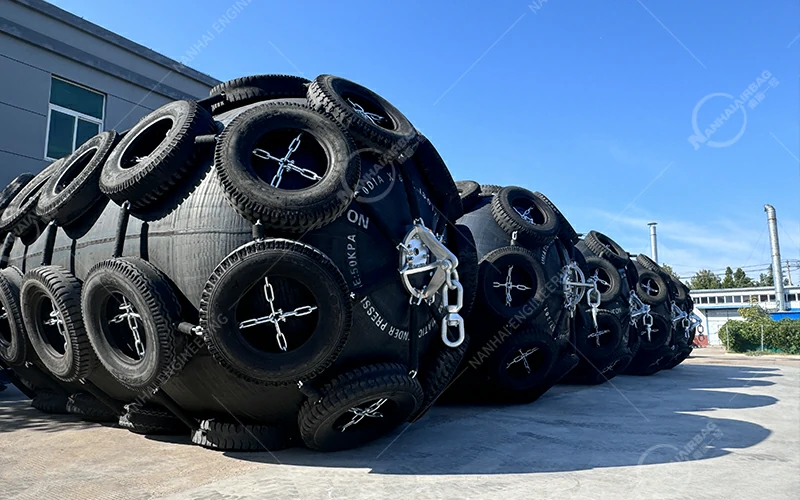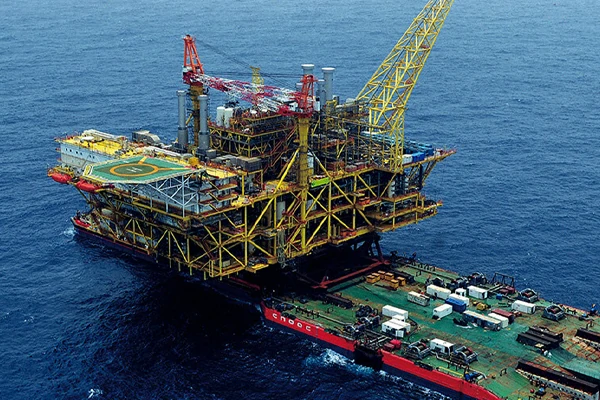How to Maximize the Service Life of Rubber Fenders
05/23/2025Foam Fender Benefits for Ship Docking
05/26/2025Solid vs. Pneumatic Marine Fenders: Which is Right for You?
When it comes to safeguarding your vessel during docking, selecting the appropriate marine fender is crucial. Two prevalent options are solid rubber fenders and pneumatic fenders. Each has distinct advantages and considerations, and the optimal choice depends on your specific operational needs.
Solid Rubber Fenders: Durable and Low Maintenance
Solid rubber fenders are crafted from high-quality rubber compounds, offering exceptional durability and resistance to abrasion, wear, and tear. Their robust construction ensures reliable performance with minimal maintenance, making them a cost-effective option over time. However, due to their inherent stiffness, they typically offer lower energy absorption compared to pneumatic fenders, especially in high-impact berthing situations.
Best suited for:
- Smaller vessels such as yachts and fishing boats
- Sheltered harbors with calm waters
- Applications where low maintenance is a priority

Pneumatic Fender: High Energy Absorption and Versatility
Pneumatic fenders consist of air-filled chambers encased within a robust rubber shell. Their compressibility allows for excellent energy absorption, minimizing impact forces on both the vessel and the dock. They are particularly effective in high-energy environments, such as busy ports or areas with strong tidal currents. Additionally, pneumatic fenders exert lower reaction forces on the vessel, reducing the risk of hull damage.
Best suited for:
- Large vessels like cruise ships, tankers, and container ships
- Berthing in exposed locations with strong waves and currents
- Situations requiring high energy absorption and flexibility
- ship-to-ship operation

Key Considerations for Selection
1. Vessel Type and Size
The size and type of your vessel significantly influence the required fendering system. Larger vessels necessitate fenders with higher energy absorption capabilities, while smaller vessels can often be adequately protected with solid rubber fenders.
2. Berthing Conditions
Consider environmental factors such as tidal variations, wave action, and currents. Pneumatic fenders are advantageous in dynamic conditions due to their superior energy absorption and adaptability.
3. Dock Structure
The type of dock—be it concrete, steel, or floating—affects fender selection. Pneumatic fenders are versatile and can accommodate various dock structures, while solid rubber fenders are more suitable for rigid docks.
4. Budget and Maintenance
While pneumatic fender may have higher initial costs, their long-term benefits include reduced maintenance and enhanced protection. Solid rubber fenders offer lower upfront costs and minimal maintenance but may not provide the same level of energy absorption.
People Also Ask
What are the advantages of pneumatic fender over traditional fenders?
Pneumatic fenders offer superior energy absorption, adaptability to various berthing conditions, and lower reaction forces, reducing the risk of hull damage.
Are solid rubber fenders suitable for large vessels?
While solid rubber fenders are durable, they may not provide sufficient energy absorption for large vessels, making pneumatic fenders a more appropriate choice in such cases.
How do maintenance requirements compare between a solid and pneumatic fender?
Solid rubber fenders require minimal maintenance, primarily visual inspections. Pneumatic fenders necessitate regular air pressure checks and inspections for potential leaks.
Can pneumatic fender be used in all weather conditions?
Yes, pneumatic fenders are designed to perform effectively in various environmental conditions, including areas with significant tidal variations and strong currents.
Selecting the right marine fender is essential for the safety and longevity of your vessel and dock infrastructure. By considering factors such as vessel size, berthing conditions, dock structure, and maintenance capabilities, you can make an informed decision between solid rubber and pneumatic fenders. For expert advice and quality fender solutions tailored to your specific needs, consult with marine equipment specialists.





